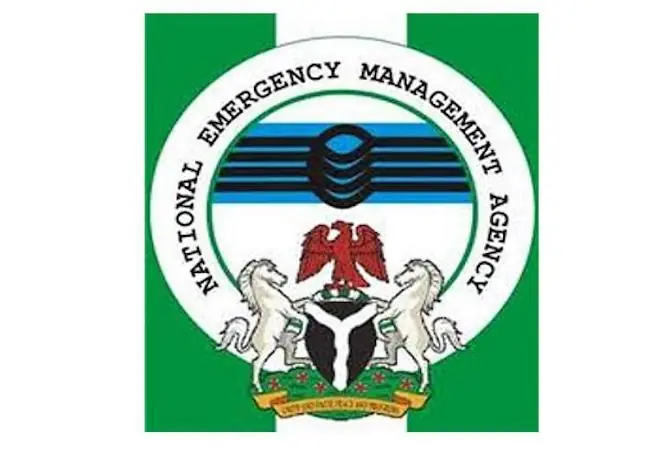Following a devastating rainfall that left homes, businesses, and critical infrastructure submerged across six wards in the Apapa Local Government Area, the National Emergency Management Agency(NEMA), Lagos Operations Office, has conducted a comprehensive flood impact assessment in the affected area.
According to NEMA, the exercise , which were carried out on Friday, August 22, 2025, covered Ward E, Ward F, Ward G, Ward H, Ward I, and Ward J, with NEMA officials working closely with ward representatives from communities such as Ladejobi, Arewa, Ojora, Baale Street, Oke-Oja, Church Street, Zion Street, and Adeleye.
This was contain in a detailed photo statement shared on the agency’s X account on Monday, 25 August, 2025
Explaining the objectives of the assessment, NEMA said the mission was designed “to determine the extent of damage, identify the underlying causes of the flooding, document the number of affected persons and structures, highlight the immediate needs of residents, and sensitise the communities on the implications of NIMET’s weather predictions while emphasising the importance of proactive and collective action.”
According to NEMA, the evaluation reports revealed that a lack of adequate drainage infrastructure and poor waste disposal practices were the primary drivers of the flooding.
“The affected areas lack adequate drainage infrastructure to effectively channel stormwater into major canals. The primary cause of the flooding was attributed to poor waste management practices, which obstructed available drainage channels and led to rainwater overflow,” NEMA said in the report, adding that as a result, “residential houses, shops, roads, bridges, schools, and other critical infrastructure were submerged,” leaving many families grappling with losses.
Head of Search and Rescue, Assistant Director Adenike Ibitayo, who lead the assessment team , warned of the public health risks posed by the disaster.
“Flooding in these communities not only disrupts livelihoods but also exposes residents to heightened risks of waterborne diseases and infections, largely due to improper waste disposal practices,” Ibitayo said.
- Home
- Business
- News
- Tourism / Travels
- Entertainment
- Regulators
- More
- Businesstoday Conference/Awards
- Business Today Magazine
Latest News
Please Subscribe
subribe to get the latest news delivered to you free
News  BusinessTodayNGAugust 25, 20251 Mins read464
BusinessTodayNGAugust 25, 20251 Mins read464
Flooding: NEMA Conducts Impact Assessment, Hints Communities Of Health Risk

Share
Related Articles
INEC Revises 2027 General Election Timetable, Moves Presidential Poll to January
The Independent National Electoral Commission (INEC) has released a Revised Timetable and...
ByBusinessTodayNGFebruary 27, 2026Media Office Clarifies: Police Action Against Mrs. Ohiri Was Lawful, Not Ministerial Vendetta
The Media Office of the Honourable Minister of Works, Senator Engr. David...
ByBusinessTodayNGFebruary 26, 2026NDLEA Targets Bigger Impact with 2026–2030 National Drug Control Master Plan
The Chairman/Chief Executive Officer of the National Drug Law Enforcement Agency (NDLEA)...
ByBusinessTodayNGFebruary 26, 2026Tinubu to Senators: Amend Constitution to Establish State Police
BY NKECHI NAECHE-ESEZOBOR—President Bola Tinubu has urged the leadership of the 10th...
ByBusinessTodayNGFebruary 26, 2026









